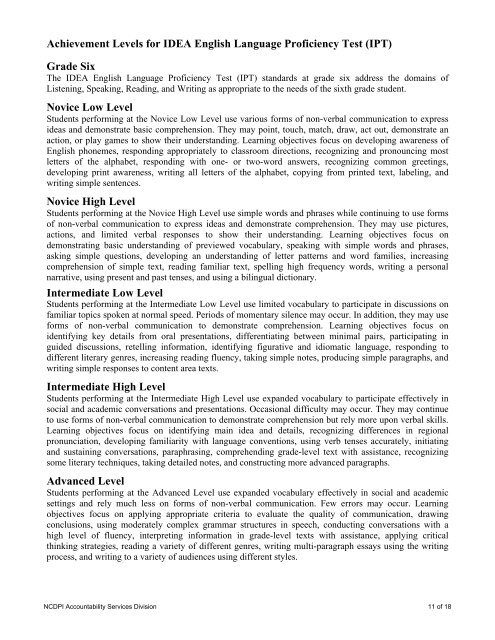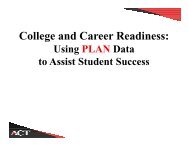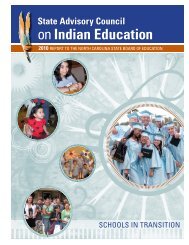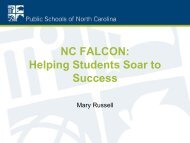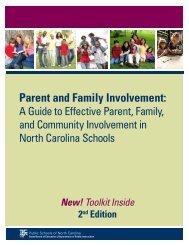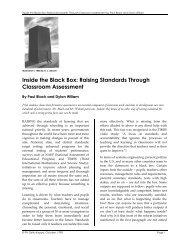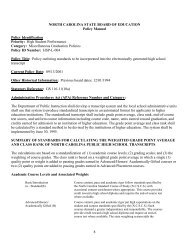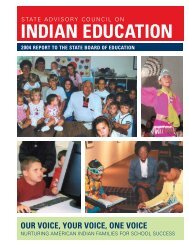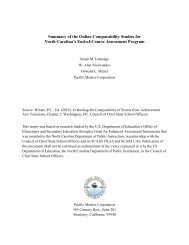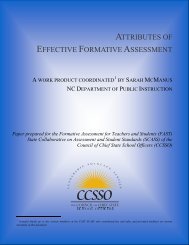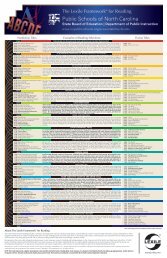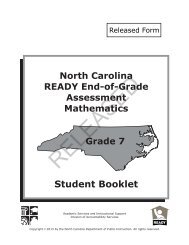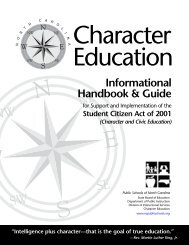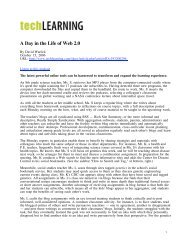Achievement Levels for IDEA English Language Proficiency Test (IPT)
Achievement Levels for IDEA English Language Proficiency Test (IPT)
Achievement Levels for IDEA English Language Proficiency Test (IPT)
Create successful ePaper yourself
Turn your PDF publications into a flip-book with our unique Google optimized e-Paper software.
<strong>Achievement</strong> <strong>Levels</strong> <strong>for</strong> <strong>IDEA</strong> <strong>English</strong> <strong>Language</strong> <strong>Proficiency</strong> <strong>Test</strong> (<strong>IPT</strong>)<br />
Grade Six<br />
The <strong>IDEA</strong> <strong>English</strong> <strong>Language</strong> <strong>Proficiency</strong> <strong>Test</strong> (<strong>IPT</strong>) standards at grade six address the domains of<br />
Listening, Speaking, Reading, and Writing as appropriate to the needs of the sixth grade student.<br />
Novice Low Level<br />
Students per<strong>for</strong>ming at the Novice Low Level use various <strong>for</strong>ms of non-verbal communication to express<br />
ideas and demonstrate basic comprehension. They may point, touch, match, draw, act out, demonstrate an<br />
action, or play games to show their understanding. Learning objectives focus on developing awareness of<br />
<strong>English</strong> phonemes, responding appropriately to classroom directions, recognizing and pronouncing most<br />
letters of the alphabet, responding with one- or two-word answers, recognizing common greetings,<br />
developing print awareness, writing all letters of the alphabet, copying from printed text, labeling, and<br />
writing simple sentences.<br />
Novice High Level<br />
Students per<strong>for</strong>ming at the Novice High Level use simple words and phrases while continuing to use <strong>for</strong>ms<br />
of non-verbal communication to express ideas and demonstrate comprehension. They may use pictures,<br />
actions, and limited verbal responses to show their understanding. Learning objectives focus on<br />
demonstrating basic understanding of previewed vocabulary, speaking with simple words and phrases,<br />
asking simple questions, developing an understanding of letter patterns and word families, increasing<br />
comprehension of simple text, reading familiar text, spelling high frequency words, writing a personal<br />
narrative, using present and past tenses, and using a bilingual dictionary.<br />
Intermediate Low Level<br />
Students per<strong>for</strong>ming at the Intermediate Low Level use limited vocabulary to participate in discussions on<br />
familiar topics spoken at normal speed. Periods of momentary silence may occur. In addition, they may use<br />
<strong>for</strong>ms of non-verbal communication to demonstrate comprehension. Learning objectives focus on<br />
identifying key details from oral presentations, differentiating between minimal pairs, participating in<br />
guided discussions, retelling in<strong>for</strong>mation, identifying figurative and idiomatic language, responding to<br />
different literary genres, increasing reading fluency, taking simple notes, producing simple paragraphs, and<br />
writing simple responses to content area texts.<br />
Intermediate High Level<br />
Students per<strong>for</strong>ming at the Intermediate High Level use expanded vocabulary to participate effectively in<br />
social and academic conversations and presentations. Occasional difficulty may occur. They may continue<br />
to use <strong>for</strong>ms of non-verbal communication to demonstrate comprehension but rely more upon verbal skills.<br />
Learning objectives focus on identifying main idea and details, recognizing differences in regional<br />
pronunciation, developing familiarity with language conventions, using verb tenses accurately, initiating<br />
and sustaining conversations, paraphrasing, comprehending grade-level text with assistance, recognizing<br />
some literary techniques, taking detailed notes, and constructing more advanced paragraphs.<br />
Advanced Level<br />
Students per<strong>for</strong>ming at the Advanced Level use expanded vocabulary effectively in social and academic<br />
settings and rely much less on <strong>for</strong>ms of non-verbal communication. Few errors may occur. Learning<br />
objectives focus on applying appropriate criteria to evaluate the quality of communication, drawing<br />
conclusions, using moderately complex grammar structures in speech, conducting conversations with a<br />
high level of fluency, interpreting in<strong>for</strong>mation in grade-level texts with assistance, applying critical<br />
thinking strategies, reading a variety of different genres, writing multi-paragraph essays using the writing<br />
process, and writing to a variety of audiences using different styles.<br />
NCDPI Accountability Services Division 11 of 18


